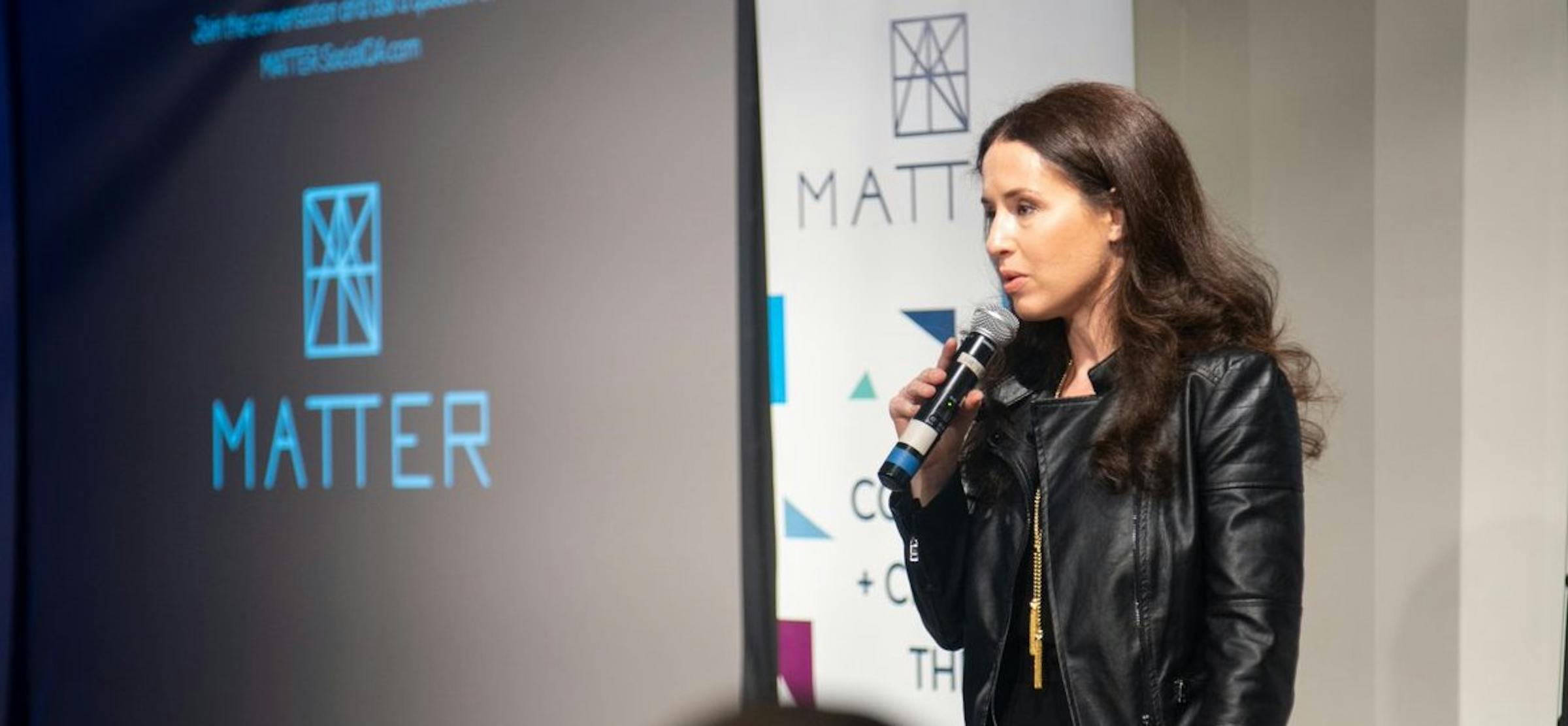How can tech make the end of life more human?
A discussion with Dr. Shoshana Ungerleider
Last month, we hosted a screening of End Game, the Netflix documentary The New York Times calls a provocative and intimate look at how doctors, nurses and patients cope with death.
What’s it going to take for us to see talking about care at the end of life as a normal wellness practice? -@ShoshUMD #RoadtoEndWell pic.twitter.com/QpTcwZiXI0
— MATTER (@MATTERhealth) June 6, 2019
Following the screening, End Game executive producer Dr. Shoshana Ungerleider moderated a conversation with Julie Goldstein, chief of clinical ethics at Advocate Illinois Masonic Medical Center, Ashish Shah, co-founder of Prepared Health and Emelia Altschul, director of marketing at Vynca. The panelists discussed how technology is being used today to help people experience the end of life in a way that matches their goals and values — and how it could and should be used in the future.
Read our key takeaways from the conversation below.
Julie: Having the necessary conversations
“I had informative experiences during my residency — in particular in the intensive care unit — with patients who couldn’t speak for themselves. Often with critically ill patients, there was just an empty space where answers should have been around who was going to make decisions for this person…and what the appropriate decisions were that would match what they would have wanted in this circumstance.
“So much of the suffering that’s happening is because there haven’t been conversations [about end-of-life care]”
“So much of the suffering that’s happening is because there haven’t been conversations [about end-of-life care]…The conversations about what somebody may want in the future should be pushed well upstream and out of the intensive care unit, where it really doesn’t seem appropriate. Those conversations need to happen in the outpatient space when [the patient] is stable and it’s a better time for them to think about what they might want in the future.”
Emelia: Training doctors on talking about death
“We know a huge barrier is that it’s not an easy or comfortable conversation to have, and a lot of physicians are not trained [on how to have them] in medical school. They’re not trained throughout their career on how to have end-of-life conversations or even on how they can get paid when they have them. Even though there are advanced care planning codes and physicians can get reimbursed, it’s not something they do all the time. There is a way for technology to be able to provide this education to physicians, patients and caregivers.”
"Planning for what you want at the end of life should be a lifelong process, but the reality is these conversations are only happening at the very end of life or when it's too late." -@VyncaHealth's Emelia Altschul #RoadtoEndWell pic.twitter.com/BfVwgDKyva
— MATTER (@MATTERhealth) June 6, 2019
Shoshana: Tackling societal stigma around talking about death
“On the consumer-facing side, people don’t feel that sense of urgency. When you’re young and healthy — or not young but healthy — you’re not usually thinking about the end of your life: That today or this week or month could be your last, or that you should pause and personally reflect on what matters most to you and the people that you love in that scenario. That’s a huge challenge a lot of entrepreneurs are facing who are thinking about the advanced care planning space; focusing on consumers and tackling that societal stigma around talking about mortality and talking about the end of life.”
“When you’re young and healthy — or not young but healthy — you’re not usually thinking about the end of your life.”
Ashish Shah: Bringing families together during critical times
“Most people don’t understand the benefit of hospice. As much as it is about the individual, the benefit is also about the family and the entire group of people who are dealing with something that is very difficult. Of course, the individual is the centerpiece there but connecting loved ones is essential as well. For example in End Game, the sister flew out from Switzerland to be with her sister in America. That’s the norm: Most families and communities are geographically displaced. That’s why we have a huge focus on connecting systems together. This film shows us that there’s a huge need to bring people together in the most critical moments. We are excited to do a little piece of it, but we have a long way to go.”
“There’s a huge need to bring people together in the most critical moments.”
Adam Hayden: Building relationships between patients and doctors
“When thinking about designing with the user in mind, I want to think a little bit about EMRs. Are we doing anything with direct patient care when we think about EMRs? I just want to put that out there, because it’s easy to lose sight of why we built this tool.
“I was reading an interview on the way up this afternoon with Eric Topol, the author of Deep Medicine, and he talks about how there’s a great promise in AI. That promise is to offload the analytic work that the clinician has so that there can be a real relationship — a therapeutic partnership — that might develop between the patient and clinician…When we talk about the therapeutic partnership it isn’t just: ‘I know my doctor and my doctor knows what I’m up to.’ It’s really the value, the richness and the depth of that relationship.
“We wonder why a lot of people go to holistic medical practitioners instead of using modern medicine — well, that’s because you can have a real relationship with a holistic medical practitioner because they’re unburdened by 15 minutes of billable time. So, what I would encourage entrepreneurs to think about is who we are really designing this for, why are we building the tool and then how do we facilitate a meaningful relationship. Because medicine is about caring, it’s about healing — and that starts with a relationship.”
"I still have to take care of my kids, go to work, remember to take my meds and live my daily life living with a serious illness. Data isn’t enough to give anyone the full picture of what that life is like — you need to see it in action." -@adamhayden #RoadtoEndWell pic.twitter.com/LyYEWdNzTW
— MATTER (@MATTERhealth) June 6, 2019
This program was hosted in collaboration with End Well. The End Well Symposium is an annual conference that brings people, across all disciplines, together to collectively ignite a conversation about how we live and how we die. Learn more about the event, taking place on December 5 in San Francisco.



